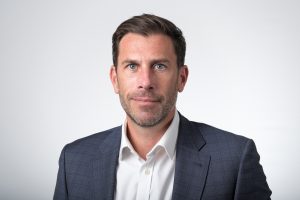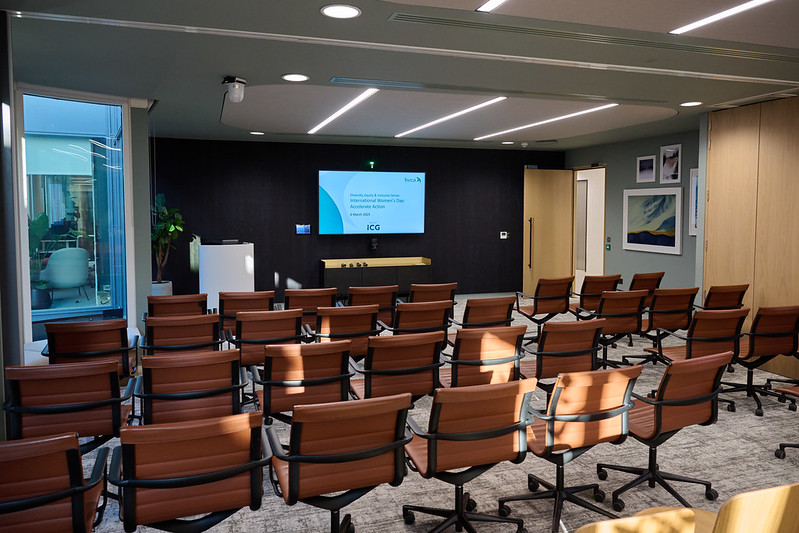Belasko’s Chief Commercial Officer, Ross Youngs, recently worked with the British Private Equity and Venture Capital and Association (BVCA) to support their Accelerate conference aimed at providing advice and guidance to the UK’s venture capital community, those raising funds to deploy across Seed and Series A as well as innovative start-up companies seeking funding. Both communities have something in common – they’re searching for the minimum viable product. Ben Cocoracchio, a fund formation partner at Addleshaw Goddard, was also in attendance and we’ve teamed up to share our views on the key considerations for determining the minimum viable product for an emerging venture capital manager.
Introduction
If you’d have asked what MVP was a few years ago, the answer would have been Most Valuable Player with Kobe, MJ and Lebron first springing to mind. However, having worked with our venture capital client community, it has become clear that finding the ‘minimum viable product’ serves as a critical success factor for first time fund managers and portfolio companies.
But, as an emerging venture capital manager, what key factors should you look out for to determine the minimum viable product (MVP)?
Right-sizing your fund
A very common struggle for first-time venture capital funds (VCs) is deciding on an appropriate fund size. This is a delicate balancing act between choosing a fund size that can be realistically raised while also making sure the size is appropriate for the investment thesis.
“When right-sizing their fund, first-time VCs really need to think through the construction of their target portfolio, i.e., what cheque size they’re aiming for, how many investments will they make and how much capital they want to reserve for follow-ons” says Cocoracchio. “It’s also important to think about fundraising dynamics – can the VC raise a decent portion of the fund size at the first closing (which is crucial to build momentum)? Does the proposed fund size rule out certain investors (e.g., institutional investors find it hard to commit to smaller funds)?”.
When VCs are seeking to raise their first fund, there’s generally considered to be a minimum fund raise to power the investment platform for the duration of the investment or divestment programme. It’s very challenging to make the economics work below a certain size of fund, particularly when it comes to covering staff overheads and operating costs over the life of the fund. But so-called “micro funds” are successfully being launched, it just takes a degree of nimbleness, creativity, and compromise.
Choosing the right jurisdiction
A reputable well-regulated jurisdiction is essential to provide comfort that an investor’s capital is adequately safeguarded by regulation, but choosing the right fund jurisdiction involves considering a multitude of different factors.
“In the emerging manager space, we typically see clients favouring the simplicity, investor familiarity and speed-to-market of Channel Islands and UK, with European domiciles being reserved for situations where particular investors demand a European structure or, if needed, to market in some of the trickier European jurisdictions”, says Cocoracchio.
At Belasko, we see a similar trend and the factors cited for this leading share are the familiarity for European and US investors, lower cost and being less administratively burdensome than popular European domiciles.
Standardising the term sheet
Raising capital is a time consuming and intensive process, often lasting between 12-24 months (or longer!). For emerging mangers in particular, any deviation from what investors perceive as “market standard terms” runs a very real risk of adding friction to the fundraising process.
In developing their MVP, emerging managers would do well not to stray too far off-piste with the terms of their fund and to really focus on what’s important to executing their fund strategy. For example, some fund terms are still fairly standard (e.g., most venture funds in the market have a life span of 10 years, an investment period of around five years and for the fundraising to be concluded within 12 months of first close).
Interestingly, new themes noted in Addleshaw Goddard’s Spotlight on Venture Capital Report highlight a range of approaches being taken by VCs when it comes to calculating management fees and carried interest. “These “premium fund terms” can have a material economic impact – but they’re of no use if they deter investors and prevent the fund from being launched”, says Cocoracchio.
Fund administration: finding the right fit
There are lot of options available to new managers to raise a fund such as:
- Full tech automated solutions: Low-cost base but rigid self-service solution.
- Boutique customisable administration: Experienced staff supported by technology.
- Global administration brands: Multi country standardised service models often with centralised resources that use industry standard technology.
As a first-time fund manager, working with an experienced fund administrator can add real value to fundraising and day to day running. They can ensure the investor experience is seamless, provide guidance and support on the expected reporting and can provide the flexibility and agility to accommodate the ad-hoc nature and complexity of venture capital along with shorter deal cycles. By applying a goldilocks approach in the detailed due diligence performed when selecting your administrator will ensure you find just the right blend of cost and quality.
Building a strong team
Every fund launch requires a strong team. The venture capital market is a tight nit community and selecting an experienced team of service providers will add value the credibility to the fund offering and ensure that terms and structures are not over-complicated, and costs are carefully managed.
“When it comes to working with first-time managers, the key for us is to use our collective experience to provide the simplest solutions with the greatest impact – no over-engineering and no unnecessary (expensive) bells and whistles”, says Cocoracchio.
MVP: the foundation of venture success
The concept of seeking an MVP transcends beyond the start-up realm and becomes a vital baseline for emerging venture capital fund managers. It serves as a tangible checkpoint, ensuring that resources are effectively utilised, risks are mitigated, and paves the way for sustainable growth and for leveraging innovation from the venture capital ecosystem.
Belasko works with first time and experienced venture capital fund managers across the Channel Islands and Luxembourg. We provide tailored, full scope administration services, underpinned by expertise and technology solutions to provide the perfect MVP in venture capital. Get in touch with Ross Youngs ([email protected]) to learn more.
Addleshaw Goddard is an international law firm, whose private funds team advises a broad range of managers (from first time managers to established global institutions) on both onshore and offshore fund mandates, across all sectors including venture capital and private equity. Addleshaw Goddard’s Spotlight on Venture Capital Report and Funds Trends Report are available here.




